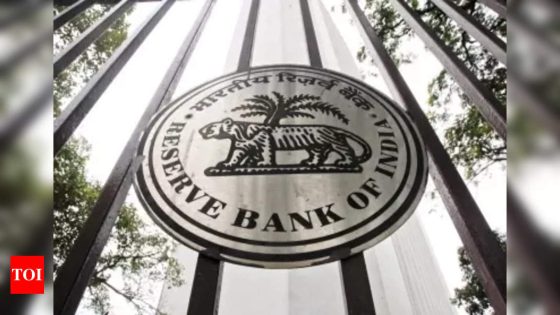MUMBAI: RBI‘s deputy governor M Rajeshwar Rao cited last week’s global Windows outage to highlight the risks of outsourcing and relying on a single vendor for critical services. He also pulled up lenders for partnering digital platforms that do not provide redressal mechanism.
“Last Friday’s (incident) essentially reflects the kind of risks which I’m talking about.Third-party dependencies and digital outsourcing have become integral to the operations of financial service entities consequent to the rapidly evolving technology,” the deputy governor said in a speech at a BFSI summit organised by ratings agency CareEdge on Monday. Rao said that dependence on third parties can create vendor lock-in situations where regulated entities become reliant or captured by a single vendor of critical services. “This lack of vendor diversification can increase dependency risks and limit the flexibility of the entities to adapt to changing market conditions,” he added. Rao said that despite regulatory efforts, some entities fall short in customer service and transparency, which impacts trust and satisfaction.
“Guidelines mandate that regulated entities should ensure that the lending service providers engaged by them have suitable grievance redressal mechanisms on their website or apps. A recent study undertaken by us has found that not all of these lending service providers or apps have the kind of mechanism which we thought they would be having,” he said.
Rao also stressed the importance of transparency and effective mechanisms for handling customer complaints. This includes addressing issues such as hidden fees and aggressive sales tactics.
The deputy governor noted the critical importance of assurance functions – risk management, compliance, and internal audit – in identifying and managing risks to sustain financial growth. Rao said that RBI supports a hybrid regulatory approach, combining activity and entity-based regulations to adapt swiftly to changes in the sector while maintaining robust risk management.
“Last Friday’s (incident) essentially reflects the kind of risks which I’m talking about.Third-party dependencies and digital outsourcing have become integral to the operations of financial service entities consequent to the rapidly evolving technology,” the deputy governor said in a speech at a BFSI summit organised by ratings agency CareEdge on Monday. Rao said that dependence on third parties can create vendor lock-in situations where regulated entities become reliant or captured by a single vendor of critical services. “This lack of vendor diversification can increase dependency risks and limit the flexibility of the entities to adapt to changing market conditions,” he added. Rao said that despite regulatory efforts, some entities fall short in customer service and transparency, which impacts trust and satisfaction.
“Guidelines mandate that regulated entities should ensure that the lending service providers engaged by them have suitable grievance redressal mechanisms on their website or apps. A recent study undertaken by us has found that not all of these lending service providers or apps have the kind of mechanism which we thought they would be having,” he said.
Rao also stressed the importance of transparency and effective mechanisms for handling customer complaints. This includes addressing issues such as hidden fees and aggressive sales tactics.
The deputy governor noted the critical importance of assurance functions – risk management, compliance, and internal audit – in identifying and managing risks to sustain financial growth. Rao said that RBI supports a hybrid regulatory approach, combining activity and entity-based regulations to adapt swiftly to changes in the sector while maintaining robust risk management.
Source Agencies


